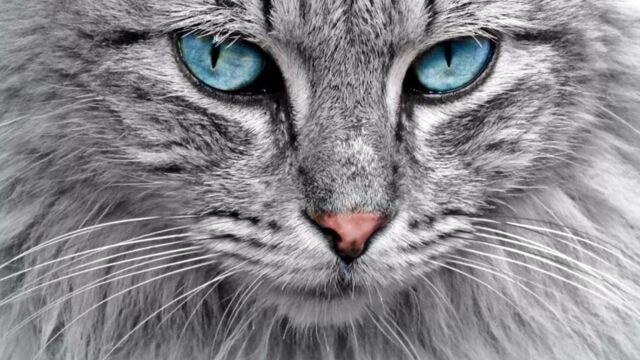Whiskers add a certain substance to cats’ innocent looks and make them even more irresistible. But these facial hairs are not there just to decorate our pets. They play a vital role in your feline's daily life. Without the bristles, catswouldn’t even be talented four-legged gymnasts as we know them.
Discover our latest podcast
Whiskers aid your pet's vision
Purina writes that your cat’s close-up vision isn’t that good. Our felinesstruggle to see anything closer than 30cm in front of them. They use their whiskers to navigate the world straight ahead, as by touching them against an object, they can identify its location, size, and even texture.
Without whiskers, cats wouldn't be able to move seamlessly at night either. The air currents depend on where the objects are placed. Your pet’s intelligent devices pick up on this and tell its brain where things are.
These powerful hairs provide the sense of touch
Unlike human hair, your cat's whiskers are deeply embedded and connected to the nervous system. The tips of these keratin threads are equipped with sensory organs called proprioceptors that send information directly to the brain. They are like our sense of smell, vision and fingertips at the same time!

Whiskers are a communication tool
According to Pet MD, cat whiskers may be involved in communicating with other animals and even with you. Tiny muscles around the base of the whiskers allow stressed cats to point their whiskers toward potential threats and relax them when they are content. If you look carefully, you’ll notice that an unwell cat may grimace by pulling its smart antennas back against its face.
They protect cats. Whiskers to the rescue!
The incredible whiskers protect your cat’s sensitive spots from possible danger or injury. The ones around the eyes respond to the tiniest touch, such as a speck of dust, allowing your feline to shake it off or blink to remove it. When your pet is outside exploring the world, their whiskers will detect sharp things first, offering essential protection to their eyes and face.
Whiskers provide a sense of orientation

The way gravity pulls on these irreplaceable facial hairs will tell a cat where they are located in relation to the ground. As cats are involved in quite a lot of leaping and jumping, this function is vital for them to land safely on their feet.
How to take care of these precious devices?
For starters, never ever cut them. Even if your pet only stays indoors, it still relies on the sensory input from their whiskers. When the information cycle breaks, your kitty may feel lost and confused. If you see that your pet dropped one or two of its whiskers, don’t panic. They grow back.
Read more:
⋙ Are cats untrainable, aquaphobic, evil brats? Read the surprising truth
⋙ Want to get more snuggle-time with your cat? Do this and thank us later















